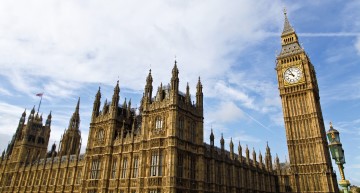The research cited is from The REBA/WEALTH at work Employee Financial Wellbeing Survey 2022 which was carried out online between April and May 2022. Responses were received from 289 wellbeing, HR and employee benefits specialists, representing around 1 million employees, working at organisations of various sizes and across a broad range of industry sectors and was launched today (18 October 2022).
How the workplace can ease the cost of living crisis.
18th October 2022

The Reward & Employee Benefits Association (REBA) in association with WEALTH at work has launched its new workplace Financial Wellbeing Research 2022, with responses from nearly 300 companies representing around 1 million employees. It found that cost of living concerns are dominating the risks to the workforce’s financial wellbeing.
Employers cite rising energy prices as the number one risk to the financial wellbeing of their staff (91%), with other cost of living concerns, such as rising consumer inflation (81%), rising rent costs (63%), wages not being high enough to cover the cost of living (50%), and high household debt levels (49%) also factors. In addition, given recent interest rate hikes, many will now also be concerned about mortgage costs as interest rates could head even higher.
As the crisis deepens, boards have been forced to become more aware of the importance of financial wellbeing. This is highlighted in Aviva’s 2022 Working Lives report which finds that boards are more concerned about the soaring cost of living (35%) than staying ahead of competitors (25%) and the fallout of Brexit (17%) in terms of priorities.
Workplaces also recognise that poor financial literacy is a key financial wellbeing risk (59%), with almost half (47%) believing that improving financial wellbeing for the majority of the workforce is a challenge. On a positive note, 70% say increasing financial capability is a priority in the next two years.
Jonathan Watts-Lay, Director, WEALTH at work, a leading financial wellbeing and retirement specialist, comments;
“As the cost of living crisis deepens, many employers will want to help their employees, so it’s always worth speaking to them to see what support is available.”
He adds; “For example, this could include financial education and guidance through coaching to help employees understand their finances including ways to save money, how to manage a budget, what to do if in debt, why it is so important not to opt-out of a workplace pension, and how workplace benefits can help.”
Watts-Lay explains; “It’s important to find out what workplace benefits you have and how they can help you save money. For example, this could include employee discount schemes (on transport deals, meals or tech purchases etc.), or salary sacrifice schemes (covering cars, bikes, gym memberships or mobile phones etc.).”
He adds; “For those struggling with their finances, there are many support services available including MoneyHelper’s budget planner and charities such as StepChange and National Debtline who can help people manage debt problems. Citizens Advice can also help people to work out what benefits or grants they may be eligible for. Proactive employers are actively working to remove the stigma of debt and encourage their employees to not suffer in silence and access the support available.”
Debi O’Donovan, Director, Reward & Employee Benefits Association, comments;
“The UK’s cost of living crisis is causing greater focus on financial wellbeing in the workplace. While most employers are clear that responsibility for finances lies with individual employees and not the employer, healthy or poor financial wellbeing across a workforce can affect an organisation’s success and sustainability. Therefore, it’s time to rethink financial wellbeing.”
She adds; “Employee wellbeing got us through the Covid-19 pandemic, financial wellbeing strategies will get us through the cost of living crisis and beyond.”



